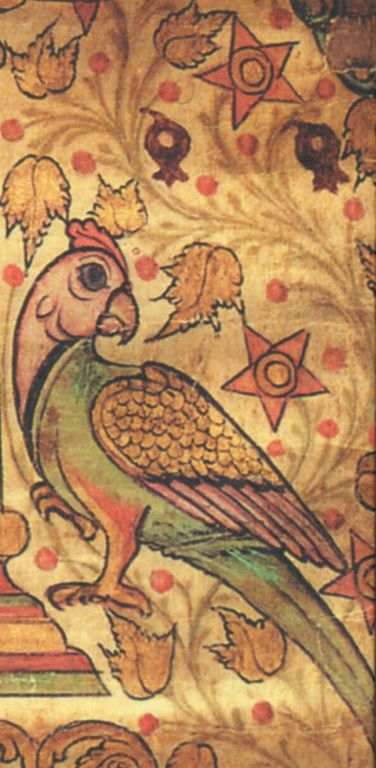2006
52. The Song of “Anokhi”
Venus Lane, Rahel Kala. Recorded by Barbara Johnson, Tiberias, 2006; III-102.
Ādam uḍayon eṟaṅṅītān sīnāyil
Ānohi ěnna vacanattě colluvān
Toṟa tannānŏ pěrippamāyavaṟkku
Ānohi ěnnu cŏlliya nāḷilu
1. Adam’s Creator came down to Sinai
To speak the word “Anokhi.”[1]
He gave the Torah to everyone
At the time it was spoken—“Anokhi.”2. Up to heaven Moshe climbed,
Without water, without food.
The diamond tablets he brought down.
The first word on them was “Anokhi.”3. “For you there must be no other God.
You must not swear by the name of God.
Untrue words you must not speak.”
All this is commanded by Anokhi.4. “You must keep Shabbat for purity,
To keep it separate from regular days,
And to honor God’s Holy Name,”
As is commanded by Anokhi.5. “Father and mother you must respect,
So that your life will be prolonged,
So that good fortune will come to you,”
As is commanded by Anokhi.6. Of the ten commandments, each is inscribed
With glittering brightness and purity.
Like the shofar sound they entered our minds
At the time when we heard “Anokhi.”
Much of this song is a direct translation of the Hebrew piyyut Yarad ’El Ḥai, “The Living God Descended” (’Areshet 1980, 76).[2] According to Kerala tradition, it is sung before taking the Torah from the ark on the second day of Shavuot, the holiday that commemorates the revelation on Sinai and the giving of the Ten Commandments. It is also sung while the prayer leader stands before the open ark on Shabbat Yitro, before the Sefer Torah is carried up to the tebah for the reading of Exodus 18.1–20.26, the portion which includes the Ten Commandments (Areshet 1980, 262). These liturgical practices are identical to those of the Sephardic Jews elsewhere.
This Malayalam song follows the Hebrew piyyut in its reference to the midrash that Moses went up to heaven from Sinai to receive the Torah, rather than God coming down to Sinai to give it, and that while in heaven Moses—like the angels—consumed no water or food. (See Ginzberg 1968, 3:109–119, 141–143.)
An interesting difference between the Hebrew and Malayalam songs is the usage of the Hebrew word ’anokhi, with which each stanza ends. In stanzas 3, 4, and 5 of the Hebrew piyyut, each decree is commanded “in ’Anokhi”—suggesting that the word ’anokhi is referring to the set of commandments collectively. But in the corresponding Malayalam verses, each decree is commanded “by ’Anokhi”—implying that ’Anokhi refers to God. As the latter meaning is the subject of much theological discussion, it is noteworthy that the composition of the Malayalam song is attributed to Ruby Daniel’s grandfather, Daniel Hai, who died before Ruby was born and was said to have been learned in kabbalah (Daniel and Johnson 1995, 52).
The composer embellished his Malayalam version by transforming the “two tablets” of the Hebrew piyyut to “diamond tablets”—which are mentioned also in the second stanza of song 15 (Sefer Torah Dedication Song). This is a reference to several passages in midrash stating that the tablets were made of precious stone, interpreted by Kerala Jews as diamonds.[3] The poetic imagery in the final Malayalam stanza—that of the words written with a brilliant light and “entering our minds” like the shofar sound—re-invokes the diamond tablets and enhances the straightforward Hebrew statement in the piyyut and midrash that the giving of the Commandments was accompanied by the sound of the shofar.
Rahel Kala (Ruby Daniel's younger sister) and Venus Lane recorded both the Hebrew and Malayalam versions of this song in 1996. While Rahel was assisting us with the translation, she re-told another story that she had learned at home about how diamond sheets will be used in rebuilding the Third Temple (Daniel and Johnson 1995, 56). The Malayalam song may have been known only to the Japheth-Daniel family, as its written text has been found only in notebook B10, written by their aunt Dolly Japheth, along with a fragment of one other Paradesi notebook.
____________________________
[1] ’Anokhi is a selectively used form of the first-person Hebrew pronoun “I” (commonly ’ani). It is the first word spoken by God in the biblical passage known as the “Ten Commandments” (Exodus 20:2–14).
[2] This piyyut probably derives from an earlier song in Ladino. The origins and different versions of this Judeo-Spanish song and its Hebrew cognates are amply discussed by Edwin Seroussi, Nuestro Señor Elohenu/Adonay hu Elohenu: memoria viva y muerta de una canción sefardí del ciclo de Moisés. Ovras son onores: Estudios sefardíes en honor a Paloma Díaz-Mas, ed. Željko Jovanović and Maria Sánchez-Pérez. Madrid: CSIC, 2021, pp. 301-321. For an abridged discussion see, https://jewish-music.huji.ac.il/en/content/22939.
[3] See Ginzberg 1968 3:119, 141, 170; 6:59, in which it is explained that the tablets were made of sapphire stone. There is no particular term for “sapphire” in Malayalam, but the word vairam in this song—commonly translated as “diamond”—is also used as a general term for a gem (See Gundert 1991, 999).







